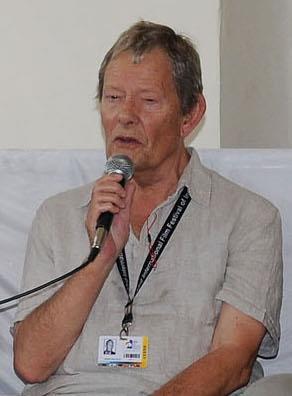
Former film critic, author, broadcaster and London Film Festival director Derek Malcolm died aged 91 on Saturday (July 15).
He was the film reviewer at national newspaper The Guardian from 1971 to 1997 and briefly contributed to Screen International. He later became critic at the Evening Standard and, toward the end of his career, wrote for HuffPost.
Malcolm estimated he watched an average of 500 films a year during his time at The Guardian.
The gregarious, much-travelled Malcolm had a huge range of friends and acquaintances. He knew well many of the filmmakers he wrote about but was equally comfortable in the presence of younger film enthusiasts and critics. He was honorary president of Firpresci, the international film critics’ association.
Malcolm was born on May 12 1932 and educated at Eton and at Oxford University. Prior to his journalistic career, he was an amateur National Hunt jockey and worked for two years as a professional actor. He was racing correspondent, letters editor, sub and deputy drama critic at The Guardian before becoming its film critic, taking over from Richard Roud. He was also director of the London Film Festival from 1984-87.
He published his memoir Family Secrets in 2003, revealing his father had shot his wife’s lover - and that his real father was actually the Italian ambassador. As a boy, he was asthmatic and small. He wrote of his schoolboy “hopelessness at sports” in Family Secrets but went on to become a talented cricketer and tennis player. He played tennis against much younger US executives in breaks between screenings at film festivals. He was also a mainstay of The Guardian’s cricket team.
A witty and waspish raconteur, Malcom would tell comical stories about everything from his experiences playing cricket with the ferociously competitive Nobel prize-winner Harold Pinter to his dinners with Christine Keeler and his meetings with famous film directors. John Ford once gave him an interview while sat on the loo, telling him he could deal with “two s**ts at once.”
Interviewed by the British Entertainment History project, Malcolm claimed that he was no expert when he started writing about film for The Guardian and could equally well have been a music or art critic. “I didn’t plan for it. They just took a risk because they knew I was quite a good writer,”
He may have come into the field in a roundabout way but established one of the UK’s most respected and best-liked film critics for a period of more than 50 years.
Malcolm died at his home in Deal from heart and lung failure.

























1 Readers' comment